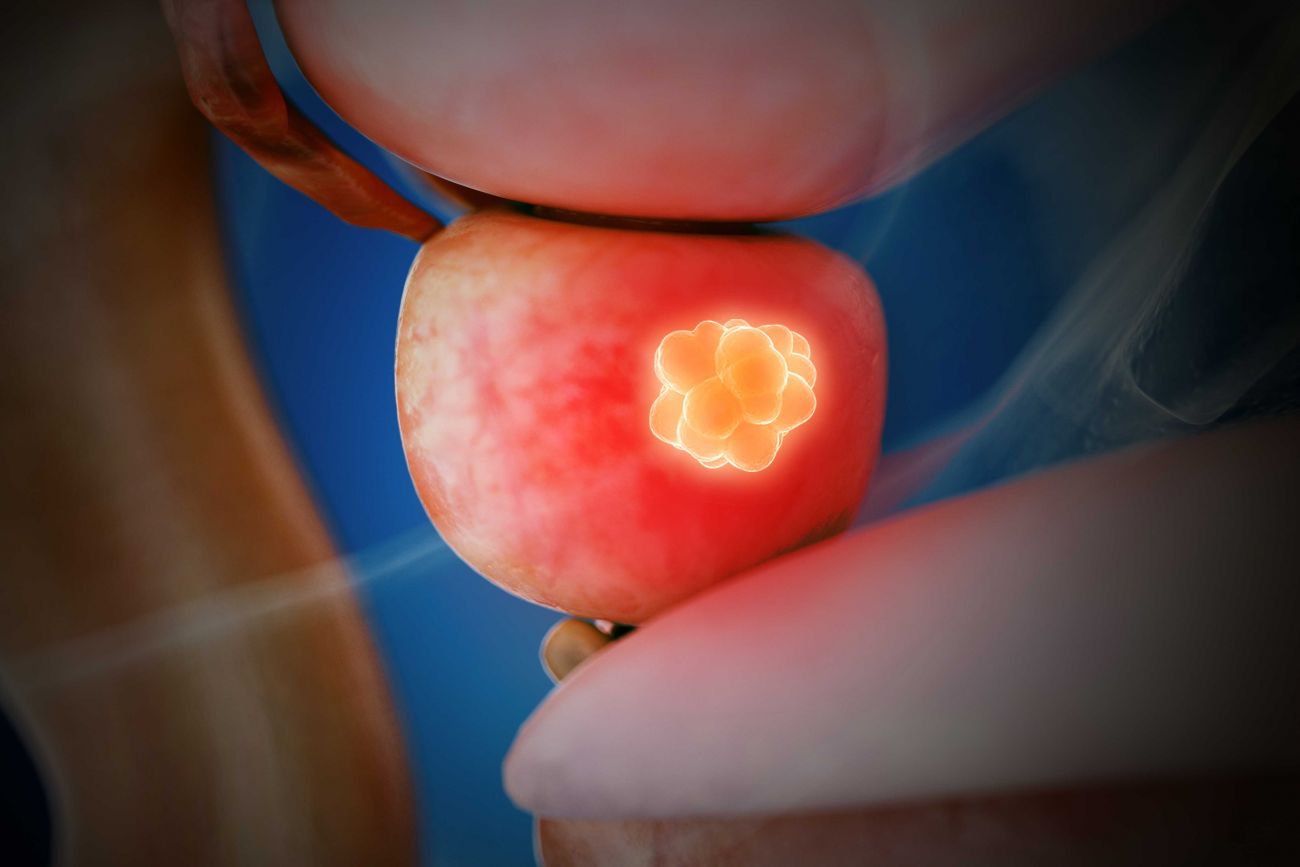Modification speeds and enhances recovery without compromising prostate cancer control
- Unique nerve-sparing technique adopted for use in robotics by Chief of Urology
- Safe, effective method uses hydrodissection and robotic-assisted technology
- Patients experience better recovery of continence compared to standard surgery
BUFFALO, N.Y. — Radical prostatectomy, or removal of the prostate gland and surrounding tissues, is a standard surgical procedure used to treat men with prostate cancer. Robot-assisted radical prostatectomy (RARP) is becoming increasingly common, but as with other radical prostatectomy methods, urinary incontinence and erectile dysfunction are common complications of the procedure.
A surgeon's experience and technique dramatically affect the outcome of prostate cancer surgery, and disease recurrence rates drop significantly as surgical experience and techniques improve. In 2008, the hydrodissection method was modified for use in robotics at Roswell Park Comprehensive Cancer Center by a highly experienced team co-led by Khurshid Guru, MD, Chair of the Department of Urology and Director, Robotic Surgery and the Applied Technology Laboratory for Advanced Surgery.
"During hydrodissection RARP, saline solution is injected into the neurovascular bundles, where the nerves and fine blood vessels lie, to facilitate dissection," says Dr. Guru, who remains at the global forefront of the technique’s refinement and application. "This method allows for the surgeon to dissect away these important structures with minimal tension or cautery, which helps to preserve crucial nerves and blood vessels surrounding the prostate to enable recovery of urinary control and sexual function after the surgery."
In a study recently published in Urology Video Journal, Dr. Guru and a team of urologic oncology specialists compared the results of radical prostatectomy between 76 men with prostate cancer who chose hydrodissection RARP compared with 126 men who opted for conventional surgical dissection methods. Both groups had similar rates of success in terms of cancer control, but the patients who underwent hydrodissection RARP had earlier and improved rates of urinary continence than patients who underwent standard dissection. Three months after surgery, 77% of men who had hydrodissection RARP had regained continence as opposed to 32% of men who had standard radical prostatectomy. At six months, these rates were 87% in the hydrodissection group compared with 53% in the standard dissection group. In addition, rates of potency were slightly better for the new-technique group.
"Urologists aim to strike a balance between achieving the best oncologic and functional success for their patients," says Ahmed Elsayed, MD, a Research Fellow in the Department of Urology and first author of the study. "For men undergoing radical prostatectomy, preserving these crucial structures offers a speedier path toward recovering their sexual function and urinary control following prostatectomy. Preserving the nerves to improve functional outcomes and patients’ satisfaction without compromising cancer control is feasible at centers of excellence such as Roswell Park."
Dr. Guru’s team will continue to monitor their hydrodissection RARP patients closely to gain better insight into longer-term results in terms of sexual function and urinary control, with the goal of preserving urinary and sexual function without compromising cancer control.
"Our results only add to the confidence we have when educating our patients, who often face overwhelming choices during cancer treatment," adds Ahmed Aly, MD, PhD, a surgeon in the Department of Urology and senior author of the study. "Our technique does not compromise the safety or efficacy of the surgery and allows for a vastly improved quality of life."
###
Roswell Park Comprehensive Cancer Center is a community united by the drive to eliminate cancer’s grip on humanity by unlocking its secrets through personalized approaches and unleashing the healing power of hope. Founded by Dr. Roswell Park in 1898, it is the only National Cancer Institute-designated comprehensive cancer center in Upstate New York. Learn more at www.roswellpark.org, or contact us at 1-800-ROSWELL (1-800-767-9355) or ASKRoswell@RoswellPark.org
Rebecca Vogt, Media Relations Specialist
716-845-4919; rebecca.vogt@roswellpark.org
